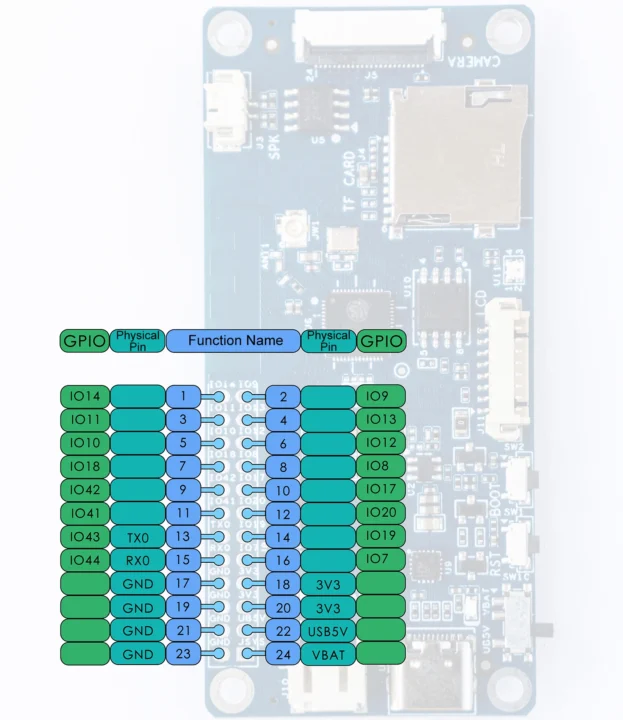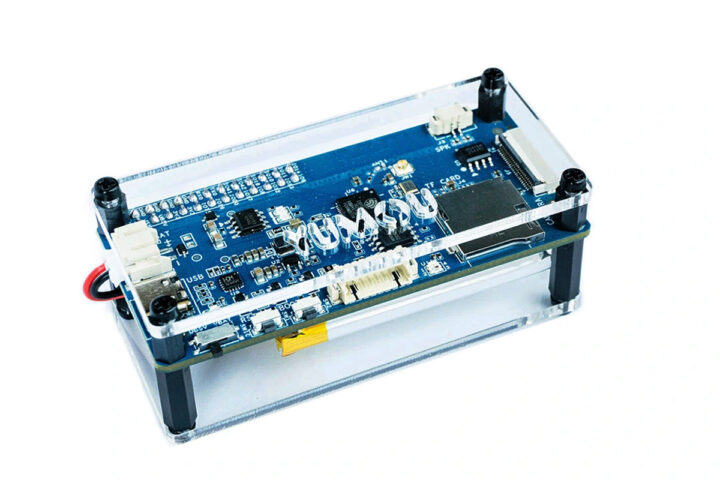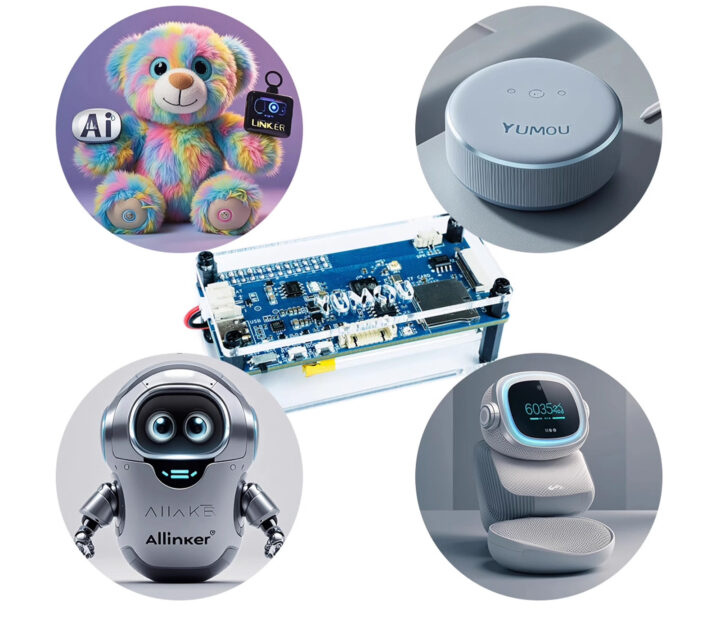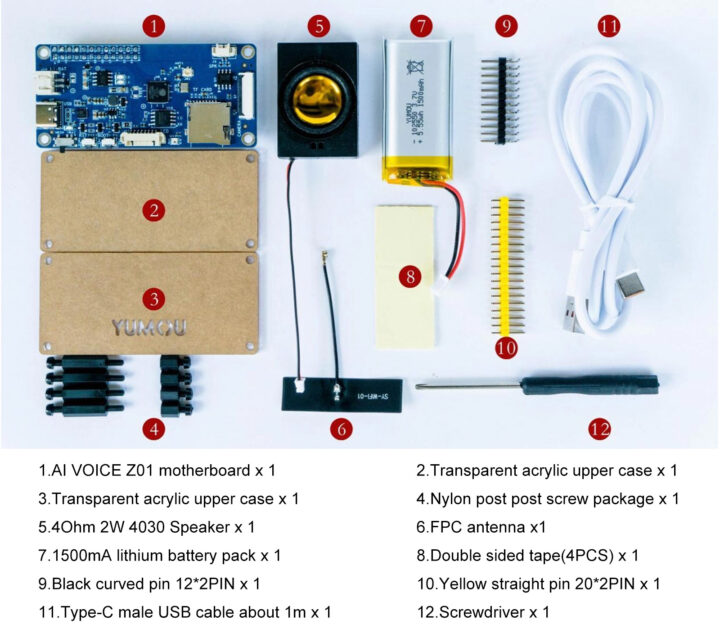The ESP32-AIVoice-Z01 is an affordable ESP32-S3-powered AI voice kit designed for creating voice-controlled AI applications. It features Wi-Fi and Bluetooth connectivity through the ESP32-S3 SoC, a dual digital microphone array for accurate voice recognition, and an onboard amplifier. The system also implements audio algorithms for noise reduction and echo cancellation.
The ESP32-AIVoice-Z01 board supports Espressif’s WakeNet voice wake-up framework and integrates with the AiLinker open-source backend service framework to enable the connection to various large AI model services like OpenAI, ZhiPu QingYan, TongYi QianWen, and DouBao. These features make this device suitable for developing AI-powered toys, IoT devices, mobile devices, and smart home applications.
ESP32-AIVoice-Z01 ESP32 AI voice kit specifications
- Wireless module – ESP32-S3-WROOM-1U
- SoC – Espressif Systems ESP32-S3 dual-core Xtensa LX7 processor
- Memory – 8MB PSRAM
- Storage – 16MB flash
- Wireless – WiFi 4 and Bluetooth 5.0 connectivity with external antenna
- Storage – MicroSD card slot
- Audio
- Dual digital microphone array (SNR 65dB) with PDM interface
- 4 Ohm 2.5W power amplifier
- I2S interface for external DAC or amplifier
- Support for noise reduction, VAD (Voice Activity Detection), and AEC (Acoustic Echo Cancellation) algorithms
- USB – USB-C for power and programming
- Other interfaces
- SPI screen interface
- DVP camera interface (not supported in the voice version)
- GPIO, UART, I2C, I2S, PWM
- Misc
- RGB LEDs
- power toggle switch
- Speaker connector
- ESP Reset and BOOT buttons
- battery connector
- SPI interface with 1.25mm x 8PIN terminals
- Power Management
- 3.3V to 5V input via USB-C, <10mA in deep sleep mode
- 3.7V lithium battery interface with battery voltage measurement
- Battery charging current 555mA @5V
- Dimensions – 77 x 36 x 33 mm
- Temperature Range – 10°C to 60°C
- ESD Protection – Air ±8kV, Contact ±4kV

The board comes with pre-trained wake word detection for hands-free operation, speech recognition for command processing, and AI-based speech synthesis (TTS) support for generating natural responses. The board can be programmed with Arduino IDE or ESP-IDF framework. Sadly all documentation is only available in Chinese right now including a Quick Start guide and Hardware guide.
Previously we have written about Espressif’s ESP32-S3-BOX AI development kit which is ideal for online and offline voice applications, we have also covered Banana Pi BPI-AI-Voice dev kit which is a Speech Recognition Development Kit based on MicroSemi ZL38063. M5Stack also released their AX630C-powered offline LLM module which has speech recognition features and can be used for applications like smart homes, voice assistants, and industrial control.
The ESP32-AIVoice-Z01 ESP32 AI voice kit costs $23.02 on the YouYeeTtoo’s store. The demo below shows the solution work with both Chinese and English languages.
Debashis Das is a technical content writer and embedded engineer with over five years of experience in the industry. With expertise in Embedded C, PCB Design, and SEO optimization, he effectively blends difficult technical topics with clear communication
Support CNX Software! Donate via cryptocurrencies, become a Patron on Patreon, or purchase goods on Amazon or Aliexpress







